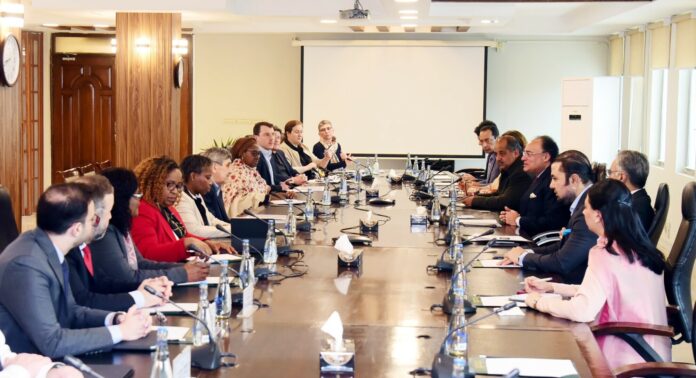ISLAMABAD: Finance Minister Muhammad Aurangzeb met with a World Bank (WB) delegation on Wednesday to present Pakistan’s economic outlook and the government’s comprehensive reform agenda, as stated by the Finance Division.
The minister highlighted key structural reforms, focusing on revenue mobilisation, energy sector improvements, and the restructuring and privatisation of state-owned enterprises (SOEs). He emphasized that the government aims to privatise up to 50 SOEs over the next 3-4 years.
Aurangzeb stressed the importance of fiscal discipline, including expenditure control and expanding the tax base, while pointing to ongoing right-sizing efforts and projected revenue growth. He reiterated the government’s commitment to creating a business-friendly environment where the private sector leads economic growth. “The government has no business being in business,” he affirmed.
The minister also expressed gratitude for the World Bank’s continued support for Pakistan’s economic and development priorities. He particularly thanked the delegation for the launch of the new Country Partnership Framework (CPF) 2026-35, which includes an unprecedented $20 billion commitment to support Pakistan’s development goals.
In response, the World Bank delegation commended the government’s reform efforts, noting that the key economic measures are showing positive results. They praised the government’s comprehensive approach and assured continued support, emphasizing that Pakistan’s structural reforms are critical for long-term economic stability and sustainable growth.
The meeting also led to discussions on creating a structured framework for development partners to enhance coordination and maximize the impact of projects. Aurangzeb emphasized that while financial support is available, what Pakistan truly needs now is expertise and technical support to fully leverage these resources.




